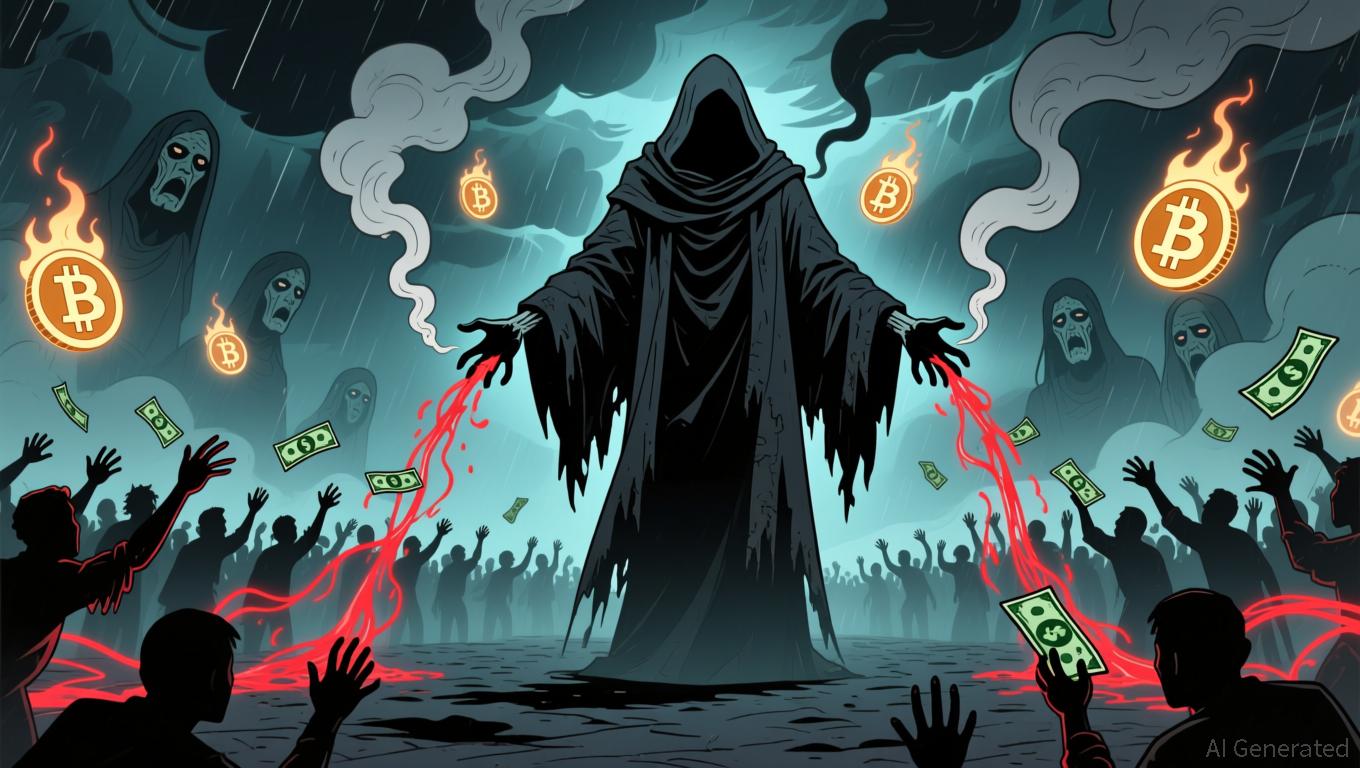JPMorgan and DBS Introduce Blockchain Network to Integrate Tokenized Currencies
- JPMorgan and DBS Bank launch blockchain framework for tokenized deposit interoperability, enabling real-time cross-border payments between institutional clients. - The system allows 24/7 instant exchange of tokens across public/permissioned blockchains while preserving fungibility and "singleness of money" value equivalence. - DBS' Rachel Chew highlights interoperability's role in reducing fragmentation, as 30% of global banks now explore tokenized deposits per BIS data. - The initiative aligns with broa
JPMorgan Chase and Singapore’s DBS Bank have unveiled a pioneering partnership to create a blockchain-powered interoperability framework for tokenized deposits, aiming to facilitate instant, cross-border payments for institutional clients. This collaboration, which connects JPMorgan’s Kinexys Digital Payments with DBS Token Services, seeks to set a new benchmark for digital asset movement across both public and private blockchains. The alliance highlights the increasing momentum among international banks to harness blockchain technology for swifter and more streamlined financial systems.
This framework enables clients to instantly swap or redeem tokenized deposits at any time, regardless of which blockchain is used. For instance, a
Rachel Chew, Group Chief Operating Officer and Head of Digital Currencies at DBS, highlighted the importance of interoperability: “Around-the-clock instant payments give businesses flexibility, speed, and the ability to respond to global changes and seize new opportunities. Ensuring interoperability is essential to minimize fragmentation and guarantee that the full value of tokenized money can move securely across borders.” Naveen Mallela, Global Co-Head of Kinexys by JPMorgan, remarked that this partnership demonstrates how financial institutions can “expand the advantages of tokenized deposits while safeguarding the integrity of money and supporting market interoperability,” as reported by
This initiative is part of a larger industry movement toward tokenized financial services. According to a 2024 survey by the Bank for International Settlements (BIS), nearly one in three commercial banks worldwide have launched, tested, or investigated tokenized deposit offerings. Other leading banks, such as BNY Mellon, Barclays, and HSBC, are also progressing with blockchain-based payment pilots. JPMorgan’s recent deployment of JPMD tokens on BaseScan—a
The DBS-Kinexys framework tackles a central obstacle in digital asset adoption: enabling interoperability between different blockchain networks. By establishing a “highway” for cross-chain transactions, this partnership reduces dependence on conventional banking systems and mitigates settlement risks. The project builds on JPMorgan’s earlier collaboration with the MIT Digital Currency Initiative, which set standards for interoperability of bank tokens on open blockchains, as reported by
Experts believe this initiative could pave the way for future international partnerships. “When two major banks from different parts of the world join forces to address real-world challenges like fragmented payment networks, it’s more than just discussion. It signals that tokenized finance is reaching a new level of maturity,” a commentator told SQ Magazine. The framework’s progress could drive broader adoption, especially as regulatory frameworks become clearer and interest in programmable money increases.
JPMorgan and DBS Build Blockchain Bridge for ...
JPMorgan, DBS eye deposit tokens as cross-bank alternative to stablecoins
DBS and J.P. Morgan Team Up to Transform Tokenized Deposits
JPMorgan and DBS to Launch Blockchain System for ...
JPMorgan and DBS Bank Team Up on Cross-Border Tokenised Deposit Framework
Disclaimer: The content of this article solely reflects the author's opinion and does not represent the platform in any capacity. This article is not intended to serve as a reference for making investment decisions.
You may also like
Bitcoin News Today: "Driven by Greed: Cryptoqueen Receives 11-Year Prison Term for $6.6 Billion Bitcoin Scam"
- Chinese "cryptoqueen" Zhimin Qian received 11-year prison sentence for orchestrating $6.6B Bitcoin fraud affecting 128,000 Chinese investors. - UK authorities seized 61,000 Bitcoin in landmark seizure, highlighting advanced crypto enforcement capabilities through blockchain analytics. - Qian evaded capture for years while living lavishly in Europe, using stolen funds to buy luxury properties and jewelry under false identities. - Judge condemned her "pure greed" for devastating victims' lives, as case spa

CFTC’s Delicate Balance: Navigating Regulation and Fostering Crypto Innovation
- U.S. Senate bill designates CFTC as primary crypto regulator, granting exclusive spot trading oversight for digital commodities like Bitcoin and Ethereum . - Legislation mandates CFTC-SEC collaboration, imposing operational standards on exchanges while retaining SEC authority over securities-classified assets. - Key challenges include unresolved DeFi regulation debates, CFTC's staffing crisis (only one active commissioner), and election-year legislative delays. - Market reactions are mixed: 25% Polymarke

Dan Tapiero says Bitcoin’s bull run is still on, but a 70% downturn could follow
OpenAI's Rapid AI Push: Prioritizing Pace Over Precaution Triggers Worldwide Criticism and Legal Challenges
- Public Citizen demands OpenAI withdraw Sora 2 over deepfake risks to democracy and nonconsensual imagery. - Sora 2's viral content, including disturbing videos and unauthorized Japanese content, sparks global copyright disputes. - Lawsuits allege ChatGPT caused mental health issues, while a German court rules it infringed song lyrics copyright. - Critics argue OpenAI prioritizes speed over safety, with reactive measures failing to address systemic risks. - The controversies highlight tensions between AI
